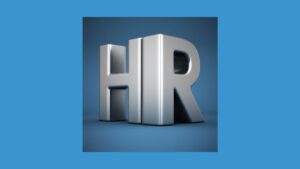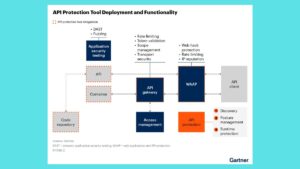How HR Tech is Revolutionizing Performance Management

Performance management has long been a cornerstone of effective human resource management, serving as a critical tool for organizations to evaluate and enhance employee productivity, growth, and engagement. However, traditional performance management systems have often been criticized for being time-consuming, inflexible, and disconnected from the day-to-day activities of employees. With the advent of HR technology (HR Tech), these challenges are being addressed, leading to a revolution in how organizations manage and measure performance. In this blog, we will explore how HR Tech is transforming performance management, making it more dynamic, data-driven, and aligned with the modern workforce’s needs.
1. Real-Time Feedback and Continuous Performance Reviews
Traditional Approach vs. Modern Needs
Historically, performance reviews have been conducted annually or semi-annually, often leading to a disconnect between employee performance and timely feedback. This lag can result in missed opportunities for improvement, misaligned goals, and decreased employee engagement.
The Role of HR Tech
HR Tech has introduced real-time feedback systems that allow managers and peers to provide immediate feedback on performance. Platforms like 15Five, Lattice, and Betterworks enable continuous performance reviews, where feedback is given in real-time, ensuring that employees are constantly aware of their performance levels and areas of improvement. This shift from annual reviews to continuous feedback not only boosts employee engagement but also fosters a culture of ongoing development.
2. Data-Driven Decision Making
Challenges with Traditional Performance Metrics
Traditional performance management often relies on subjective assessments, which can be influenced by biases and inconsistencies. This approach can lead to unfair evaluations and missed opportunities to recognize true talent.
How HR Tech Enhances Objectivity
HR Tech platforms utilize data analytics to provide objective insights into employee performance. These platforms collect and analyze data from various sources, including project management tools, customer feedback, and peer reviews, to offer a comprehensive view of an employee’s contributions. By leveraging data-driven insights, managers can make more informed decisions, identify high performers, and address underperformance more effectively. This data-driven approach also helps in reducing biases, ensuring fairer and more accurate evaluations.
3. Goal Setting and Alignment
The Importance of Clear Goals
Clear and measurable goals are essential for effective performance management. However, traditional methods often fail to align individual goals with organizational objectives, leading to confusion and misalignment.
HR Tech’s Contribution to Goal Management
HR Tech solutions like OKR (Objectives and Key Results) platforms have revolutionized goal setting and alignment. These platforms enable organizations to set, track, and adjust goals at the individual, team, and organizational levels. Employees can easily see how their goals contribute to the broader company objectives, fostering a sense of purpose and alignment. This transparency and alignment ensure that everyone is working towards the same outcomes, ultimately driving organizational success.
4. Personalized Development Plans
Limitations of One-Size-Fits-All Approaches
In traditional performance management, development plans are often generic and not tailored to individual employee needs. This lack of personalization can result in missed opportunities for growth and disengagement.
HR Tech’s Role in Personalization
HR Tech platforms offer personalized development plans based on individual performance data and career aspirations. These platforms can identify skill gaps and recommend specific training programs, mentoring opportunities, or new projects that align with the employee’s career goals. This personalized approach not only helps employees grow in their roles but also enhances their engagement and retention.
5. Enhanced Employee Engagement and Motivation
The Link Between Performance Management and Engagement
Effective performance management is closely linked to employee engagement. When employees feel that their contributions are recognized and valued, they are more likely to be motivated and committed to their work.
Gamification and Rewards
HR Tech platforms have introduced gamification elements into performance management, such as badges, leaderboards, and rewards for achieving specific goals. These features add a layer of motivation and fun to the performance management process, encouraging employees to strive for excellence. Additionally, these platforms can offer personalized recognition and rewards, further boosting employee morale and engagement.
6. Remote Work and Performance Management
Challenges of Managing Remote Teams
The rise of remote work has introduced new challenges in performance management, including difficulties in tracking progress, providing feedback, and maintaining team cohesion.
HR Tech’s Solutions for Remote Teams
HR Tech platforms have adapted to the needs of remote teams by offering tools that facilitate virtual performance reviews, real-time feedback, and goal tracking. These platforms also provide insights into remote employee productivity, helping managers support and engage their teams more effectively. By leveraging HR Tech, organizations can ensure that remote employees are held to the same performance standards as their in-office counterparts.
7. The Future of Performance Management with HR Tech
AI and Machine Learning
Looking ahead, AI and machine learning will play a significant role in the future of performance management. These technologies can analyze vast amounts of data to predict performance trends, identify potential issues, and recommend personalized interventions. AI-powered chatbots can also provide instant feedback and coaching, further enhancing the performance management process.
Employee Well-being and Performance
The future of performance management will also place a greater emphasis on employee well-being. HR Tech platforms are increasingly integrating well-being metrics, such as stress levels, work-life balance, and job satisfaction, into performance evaluations. By considering these factors, organizations can take a more holistic approach to performance management, ensuring that employees are not only productive but also healthy and fulfilled.
Conclusion
HR Tech is revolutionizing performance management by making it more dynamic, data-driven, and employee-centric. The shift from traditional methods to continuous feedback, data analytics, personalized development, and enhanced engagement is creating a more effective and fair performance management process. As HR Tech continues to evolve, organizations will be better equipped to manage and develop their talent, driving both individual and organizational success. By embracing these technologies, companies can create a performance management system that not only meets the needs of the modern workforce but also sets the stage for future growth and innovation.






